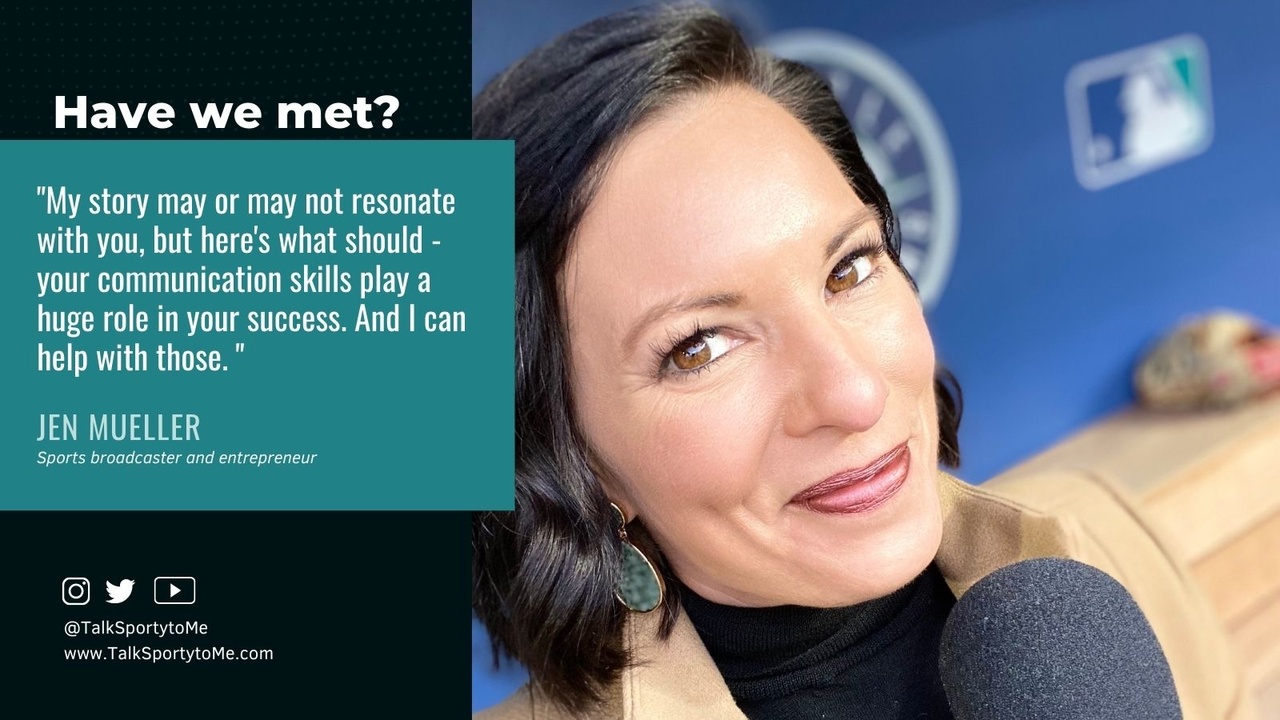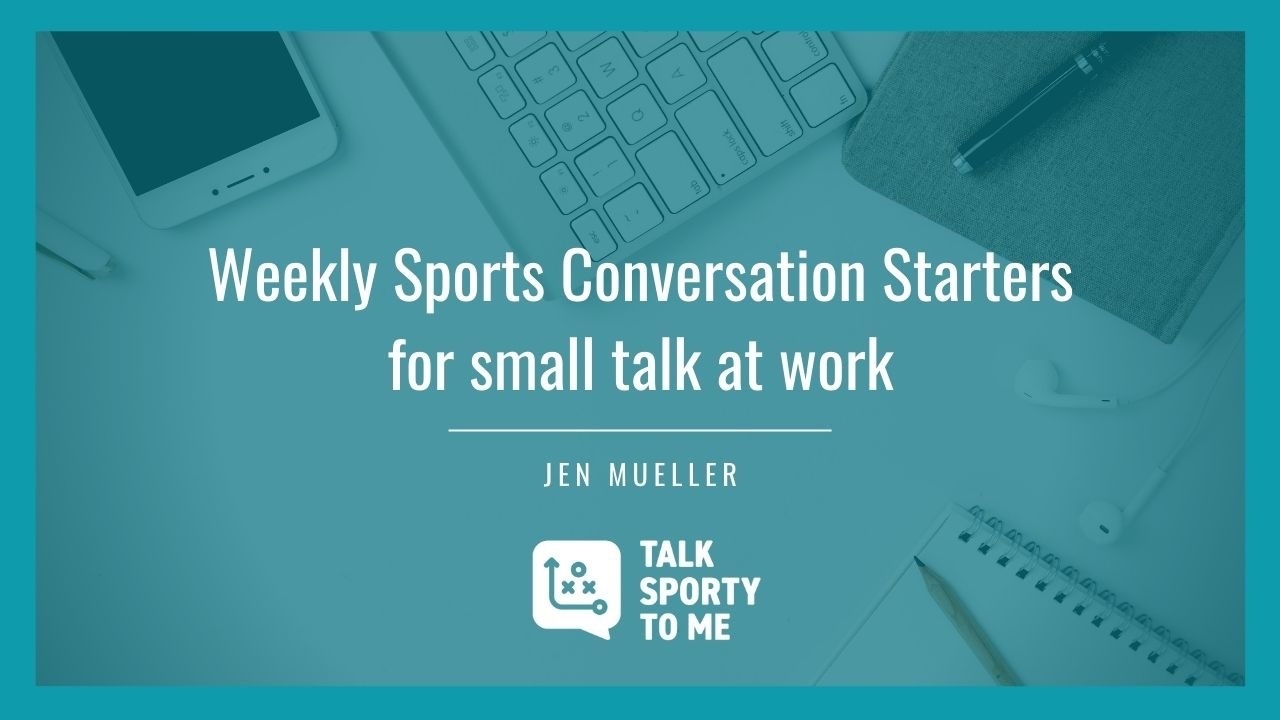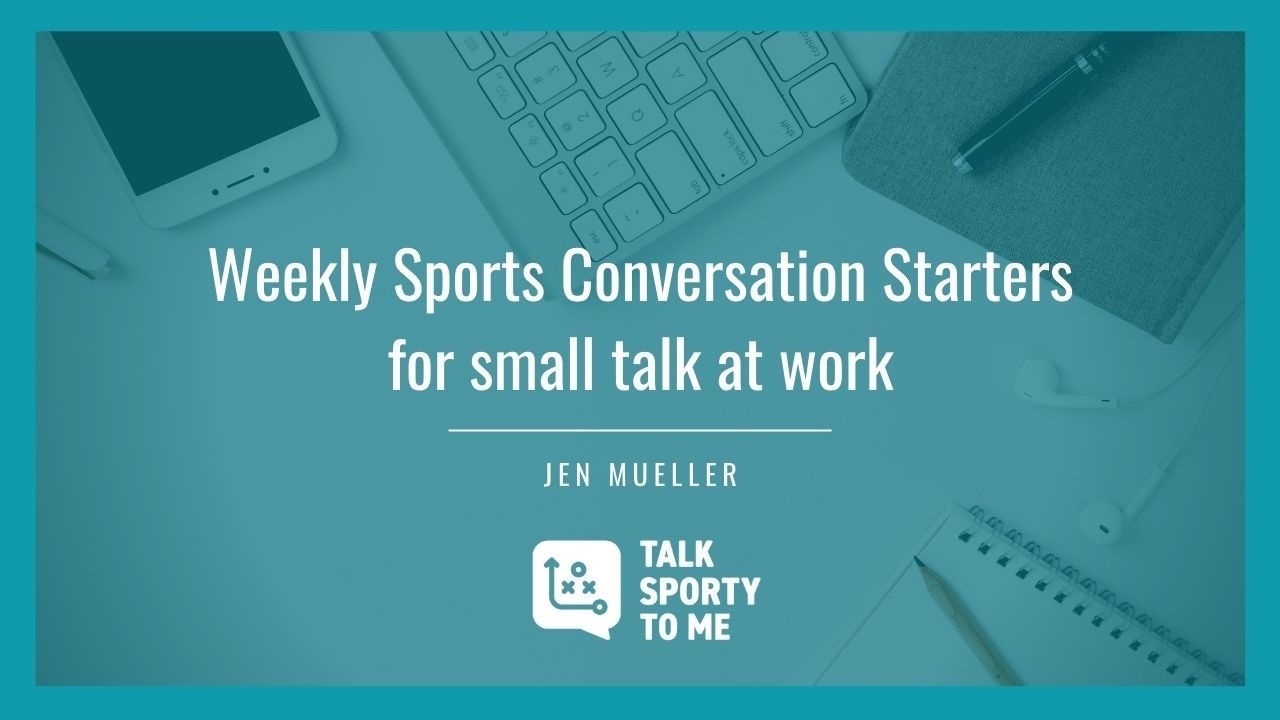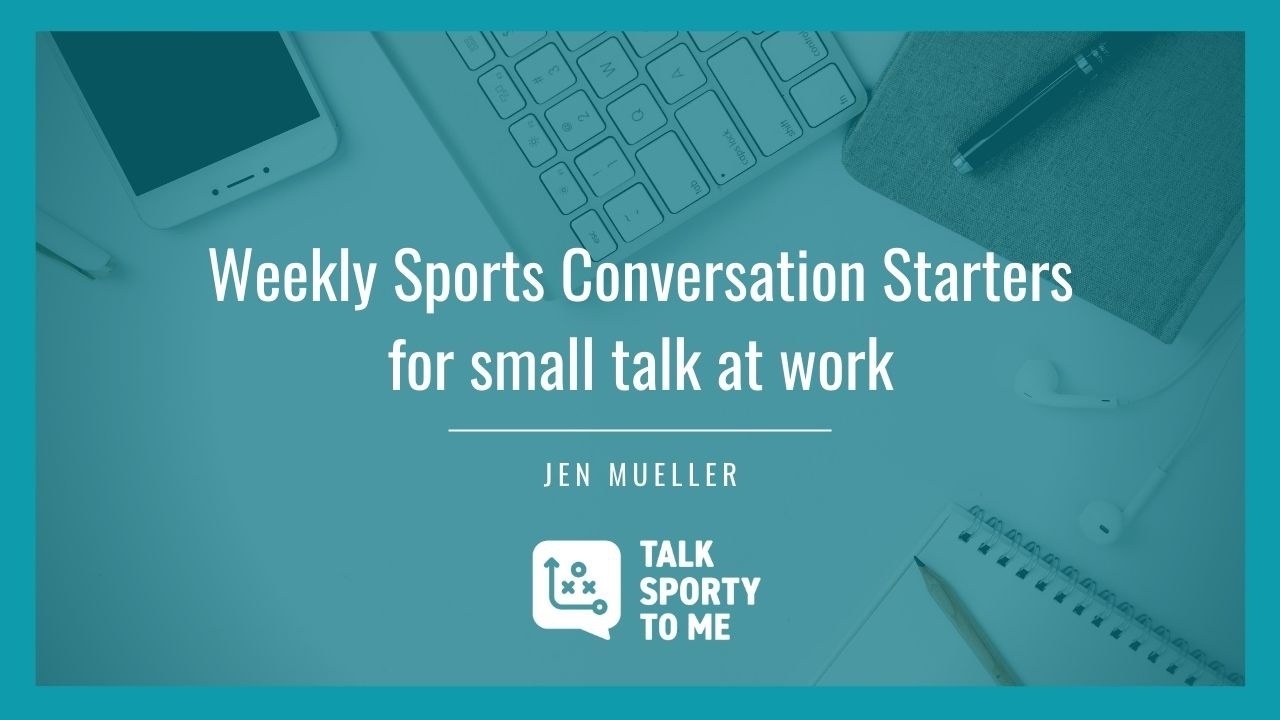I'M ONE TO TALK
Our Blog Posts will help you reach your full potential in becoming a confident conversationalist. New topics each week.
Learn from a Leader: Believe in Yourself

I love the idea of a fresh start at the beginning of the... and then the “what if’s” set in. Am I the only one?
Sports Conversation Starters for Your Workweek

The Seahawks closed out their season yesterday… and then depression set in.
I quote that line from Stripes somewhat jokingly at the end of football season every year. I get grumpy when the season ends. I miss practices, game day, game prep, my guys and my colleagues.
All I want to do is be grouchy for a couple days before I regroup and start looking ahead.
What I don’t want are fans trying to make me feel better by saying “at least baseball season is just around the corner.” I’m not looking for a silver lining. I’m not interested in talking about baseball in January and I don’t care that you’re excited about baseball season.
That might sound harsh, but this is a bigger conversation skill that sports can help you practice – empathy. Letting someone feel their feelings without jumping in with your own. Allowing someone to feel frustrated, disappointed, upset or sad without offering a reason they shouldn’t be. It might seem like a little thing in the context of a sports conversation ...
Have we met? It's so nice to connect!

Sports fits my personality. Sports broadcasting fits my skillset. Helping you communicate more confidently is my passion.
Hey there, I’m Jen!
None of my family members or teachers are surprised I choose a career that involved talking, but some days I'm surprised I ended up as a sports broadcaster. There weren't many opportunities for women to work in sports when I was in college, and it certainly wasn't something that was encouraged.
But I love to compete. That's one of the reasons sports is a natural fit for me.
Finding Ways to Win.
As a lifelong sports fan, my interest in sports comes naturally. I played multiple sports through high school and when I got college at Southern Methodist University I became an intramural flag football official, which led to a 10-year career officiating high school football and helped lay the foundation for becoming an NFL sideline reporter. I intentionally built a solid sports resume in every job and internship I pursued in college, but I over...
Sports Conversation Starters for Your Workweek

Establish relationships before you need them.
Practice your conversation skills before they’re necessary.
It’s easy to focus on productivity and the need to get things done heading into a new year and coming off the holiday break. Being productive doesn’t just mean powering through tasks. Don’t overlook the impact other people have on your ability to get things done. The relationships you build (or don’t) affect your productivity. Its why small talk is important and something to prioritize.
Be intentional about striking up conversations with colleagues, clients and employees. If you’re looking for things to talk about these sports headlines can help.

Talk Sporty 101: Start with Sports
Sports is always my go-to conversation starter. Even if I don’t know if I’m talking to a sports fan. I know that uncertainty can make some fans uncomfortable, but sports is truly one of the most efficient ways to spark small talk because the answer doesn’t matter nearly as much as the clarity it provides.
If I lead with “Did you see the game last night?” I know I’m going to get one of two answers, and quite honestly I don’t care which one it is. If the answer is “Yes” I know I can follow up with another sports question or a question about the game. If the answer is “No” I can ask something like, “What did you have going on last night?” And now I’m into a conversation without playing 20 questions or asking a handful of questions while trying to find something meaningful. Using sports as a starting point made it easier to make a connection and have a productive exchange.
Here’s something else to keep in mind: Asking “Did you see the game last night?” doesn’t mean that I had to see the...
Sports Conversation Starters for Your Workweek

This is the time of year for goal setting and predictions. Most people are either making New Year’s resolutions or predicting what will happen in the coming year. For example: Tom Brady will retire in 2022. I’m not saying I agree with that one, but it’s possible….
Here’s what I’m going to throw out there – resolve to get better at small talk and I can correctly predict you’ll become a better communicator. Small talk, as unimportant as it seems, gives you a chance to practice thinking on your feet, talking to people you don’t know well and navigating uncharted territory in conversation. Being comfortable with being uncomfortable is a great skill to have as a leader and a communicator. Use these sports conversation starters to practice this week.

Talk Sporty 101: Generally Speaking
I’m a firm believer in preparing for little conversations like small talk because a.) I want my interactions to be productive b.) I don’t want them to be awkward, especially if I’m trying to build a relationship.
Preparation can range from doing a little research on people I’ll encounter, identifying success statements I can use in response to “How are you?” and having a few general questions in my back pocket to start a sports conversation. Here are some examples:
- Who’s playing tonight?
- Are you going to watch the game tonight?
- Where did you watch the game?
- Did you see the game last night?
- Is that the game you expected?
They’re canned questions that can get a timely response. I think of these as really generic questions and while I typically advocate for asking specific questions that get you closer to your conversation goal, these questions work just fine at starting a conversation.
BUT… your goal probably isn’t just to start a conversation. You’re not just trying to fill ...
Sports Conversation Starters for Your Workweek

The two most obvious stories grabbing headlines this week are Christmas and COVID. Now seems to be a good time to offer a gentle reminder to make good choices with your conversation starters this week, especially if you’re around family. Just because something is making news doesn’t mean it makes for great conversation at the dinner table.
Even sports headlines are challenging these days, because of the prevalence of COVID. I won’t be the one to tell you not to talk sports, I will be the one who says try to stick to sports, or a safe “sports adjacent” topic to keep the Christmas spirit and family conversations on track.
Here are a few headlines you can use for sports small talk if you choose to go that route.

Learn from a Leader: Leading with Authenticity

The end of the year is always a time of reflection. It's a time to evaluate what worked what didn't. Where you had success and where you can be even more successful next year.
Goal-setting often starts with what you've done in the past. So does authenticity.
As former NFL GM Randy Mueller explains, doing the "crap jobs" develop character. It's part of your story and it's how you demonstrate authenticity as a leader. When people know you've failed or you've done the dirty work or overcome adversity they can better relate to you and follow your lead.
So when you evaluate 2021 don't gloss over where you've failed, overcome challenges and persevered. It's just as important as the success and the wins you've enjoyed.
You can find more insights from Randy and other leaders on YouTube.
Sports Conversation Starters for Your Workweek

I feel fortunate when my work travel schedule takes me back home and gives me a chance to see family. That’s what happened during the weekend when I was in Houston. Each family member I talked to – including my 4-year-old nephew – talked sports to me, regardless of their true interest in Seattle sports. I work in sports. I was in town for a game. It makes sense they would use sports as a conversation starter.
It also makes sense that people would start sports conversations with you when they know you’re a sports fan. Use can use these sports conversation starters to indicate you’re a sports fan. You don’t have to engage in long conversations, just mention them in small talk. Even if there are no follow up questions, debates or interactions you’re setting the stage for future interactions.
Don’t be shy, these topics are making news around the sports world this week.




